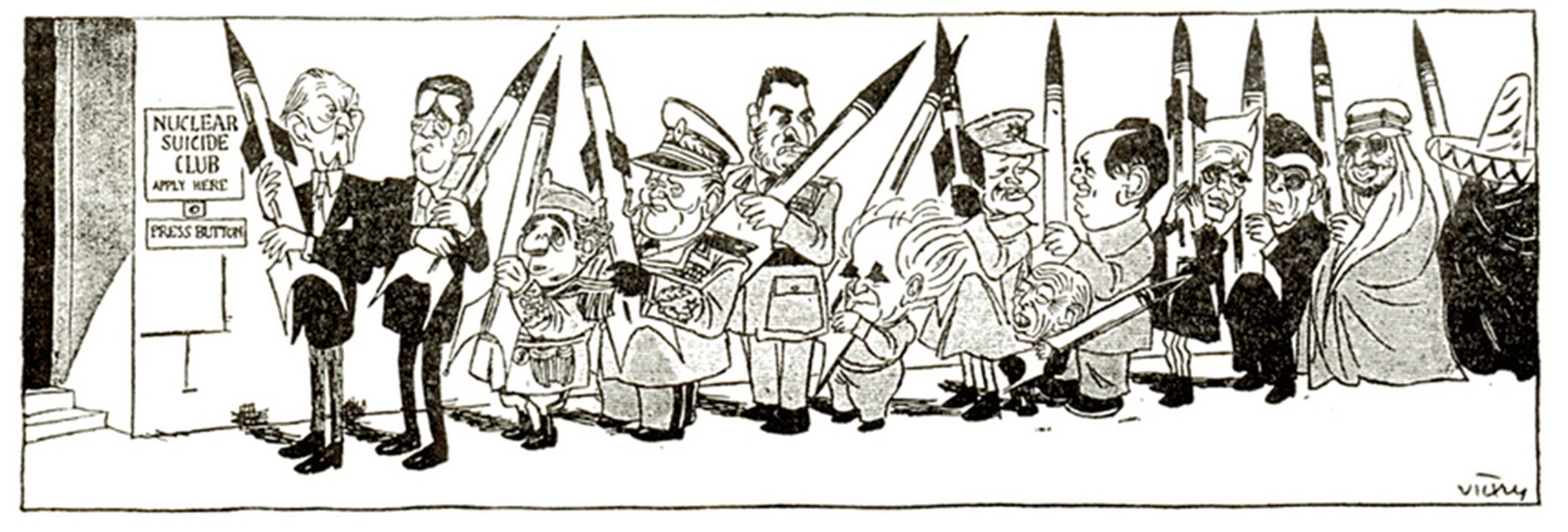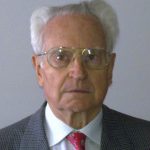
Today, following postponements from the COVID-19 pandemic, States Parties to the Treaty on the Non-Proliferation of Nuclear Weapons (NPT) gather in New York for the Tenth Review Conference (RevCon). Running from 1-26 August, 191 States will review the treaty’s implementation and progress and set their forward agenda. On day one, we ask members of the Network to reflect on what the NPT means to them.
***
It probably requires zooming out from the uncertain prospects of the Tenth Review Conference, just beginning in New York, to fully appreciate the treaty’s importance. Since 1970, the NPT has grown to provide the normative and operational framework for managing both military and civilian aspects of nuclear power. The NPT has not stopped nuclear proliferation, but I think can be accredited with slowing it down. It remains a prime example of cooperation between nuclear weapons possessors and non-nuclear weapon states and between the staunchest Cold War foes: the USSR and the United States.
I also appreciate a strong dose of political realism embodied by the treaty, especially its recognition that the five nuclear weapon states (defined by the treaty as those which detonated a nuclear weapon before 1967) could not be expected to disarm immediately. And while the NPT does not address the issue of nuclear deterrence directly, its creators seemed to acknowledge the role nuclear weapons played in the security doctrines of many states. At the same time, the treaty is not about simply accepting the nuclear status quo. Its Article VI language on “pursue[ing] negotiations in good faith on effective measures relating to the cessation of the nuclear arms race” clearly establishes an obligation of the P5 to move towards reducing nuclear risks and eliminating arsenals. Sadly, some of them seem to be currently moving in the opposite direction.
Lukasz Kulesa, Deputy Head of Research, Polish Institute of International Affairs (Contact Group on Russia-West Relations)
***
Amidst increasing geopolitical tensions, escalatory nuclear rhetoric, and a crumbling arms control architecture, the Nuclear Non-Proliferation Treaty remains a unique multilateral instrument that, for over 50 years, has provided a stable institutional, legal, and political framework for nuclear disarmament and non-proliferation.
The NPT helped establish a powerful norm and verification system against the spread of nuclear weapons and materials, enabling the widespread use of nuclear technology for peaceful purposes without sacrificing robust safety and security. Its review process has also provided a valuable opportunity to take stock of the successes and shortcomings of disarmament efforts – even if review conferences have proven to be rather contentious affairs.
For the NPT not to become a shell of itself and succumb to growing divisions and public-facing political gamesmanship, States parties should turn their energy inward and focus on identifying concrete steps to reduce nuclear risks beyond declaratory statements. The NPT has endured extended periods of tension and can do so again if States parties – in particular, the P5 – genuinely recommit to the treaty’s core principles and follow through on their past commitments. As long as there is the political will to rally around the NPT, preserving and strengthening the treaty at the upcoming RevCon should remain a common priority.
Patricia Jaworek, Programme Officer, Global Nuclear Policy Programme, NTI (Younger Generation Leaders Network)
***
The NPT is vital because it is unique. The treaty founders wrote the text when many feared the world was balancing precariously on the edge of a thermonuclear abyss. Despite this, they forged well-crafted commitments designed to prevent the emergence of new weapons states, reduce the levels of nuclear armaments, and accelerate the atom’s peaceful uses.
The splitting of the atom is dangerous and requires joined-up multilateral regulation. One hundred ninety-one treaty members (the vast majority of UN member states) agree, and no one appears to be expressing buyer remorse.
Article IV states that the right to “use of nuclear energy for peaceful purposes” is “inalienable.” This right is a basic pillar of the NPT, which cannot be eroded. However, nuclear power (as the use of all great powers) must, to paraphrase US President Franklin D. Roosevelt, “… be linked with responsibility, and obliged to defend and justify itself within the framework of the general good.”
There is a lot to be said about this. States should not run nuclear fuel cycles without full adherence to safeguards. States should forego establishing sensitive fuel cycle processes such as enrichment or fuel reprocessing to the largest extent possible. Above all, states should take all required steps to ensure that military forces do not attack nuclear reactors. Neither should these sites be used to store ammunition or otherwise shield combatants.
This is what responsibility exercised within the framework of the general good looks like. Only NPT state parties, and the treaty itself, can give weight to these responsibilities. That is one of many reasons why the NPT matters to you and the people at large.
Andreas Persbo, Research Director, ELN
***
In 1961, more than 13 states were considering acquiring nuclear weapons to protect their national interests or conserve their regimes. We know that at least two countries in Latin America and at least two in the Arab World, plus the apartheid regime of South Africa, have at some time considered acquiring these weapons. A cartoon in a 1961 article by J.B. Phelps illustrates the situation graphically.

More than sixty years later, only six of the countries indicated by Phelps have acquired Nuclear Weapons. In 2021, in order of their acquisition and first testing, nuclear stockpiles reached thus: USA, 3708, Russia, 4495, UK,180, France, 290, China, 350, Israel, 90, India, 160, Pakistan, 165, and North Korea, 8. The total number of nuclear weapons has decreased from a peak of 64,099 in 1986 to an albeit still excessive 9,278.
A majority of States have realised that if a nuclear deterrent provides their security against aggression, global security is diminished due to a larger number of Nuclear Weapons states and Nuclear Weapons in the world. In my opinion, most of the credit for this must go to the Non-Proliferation Treaty.
Carlo Schaerf, Professor and co-founder, The International School on Disarmament and Research on Conflicts (ISODARCO), Rome, Italy (Senior Network)
***
At a time when international rules and treaties are all too easily abandoned or violated, keeping the NPT process afloat is more important than ever. Many recent events could give a number of states in the world a belief that nuclear weapons are their only true security guarantee. Yet ending up on a planet where nuclear arsenals grow and respective technologies spread would mean living with a time bomb that would almost inevitably go off sooner or later.
Currently, our leading nuclear powers are barely able to speak to one another, and the ghost of a new arms race with a nuclear component is becoming real. The Review Conference will demonstrate whether it is still possible to put aside tragic conflicts and disagreements to save an international regime from which we all benefit.
The unprecedented crisis in Russia’s relations with the West is far from the only stumbling block to the NPT’s spirit and permanence. Other powerful weapons, often comparable with nuclear (even if incorrectly), now play a role in military strategies and must be taken into account when discussing NPT issues. The world has enough bright minds to address these and other problems, but progress and rationality do not always set the tone in world politics.
Sergey Utkin, Head of Strategic Assessment Section, Primakov Institute of World Economy and International Relations, Russian Academy of Sciences, Moscow (Contact Group on Russia-West Relations)
The opinions articulated above represent the views of the author(s) and do not necessarily reflect the position of the European Leadership Network or all of its members. The ELN’s aim is to encourage debates that will help develop Europe’s capacity to address the pressing foreign, defence, and security policy challenges of our time.





